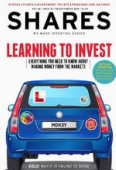Archived article
Please note that tax, investment, pension and ISA rules can change and the information and any views contained in this article may now be inaccurate.
What does an unchanged FTSE 100 tell us about the market?

As we went to press it was looking increasingly likely that the latest FTSE reshuffle would see no changes to the FTSE 100 for the first time in more than a decade.
These reshuffles can be significant and not just for the prestige associated with membership of the UK’s flagship index. It can also affect the flow of money into a stock, as, when it enters the FTSE 100, funds which track the index are compelled to buy.
We discussed in our 23 August issue, which focused on the FTSE 100, how these quarterly reviews of index membership work. As a brief reminder, companies qualify if they rank among the top 90 UK listed firms by market value and are eliminated if they fall to position 111 or below on the night before the review takes place – in this case close on 4 September.
At the time of writing, the lowest ranked FTSE 100 company was property listings site Rightmove (RMV) but it was still materially above the cut-off point for automatic demotion.
STABILITY OR STERILITY
Whether the fact the FTSE 100 will remain the same for two consecutive quarters for the first time since 2006 is a sign of welcome stability or sterility is open to question.
Since the last reshuffle was determined at the end of May, the FTSE 100 has drifted, trading close to the 7,800 mark in early August but now just barely above 7,500.
It also implies mid caps are lacking the momentum to break into the top echelons of the market. This would fit neatly into a narrative of the FTSE 250, the pool from which future FTSE 100 firms are drawn, being negatively impacted by Brexit uncertainty due to a domestic bias.
However, as we discussed in our follow-up to the FTSE 100 feature last week, which looked at the FTSE 250 in detail, many of its constituents have international horizons.
The two companies which were knocking hardest on the door of the blue chip index, oil services firm Wood Group (WG.) and industrial pumps specialist Weir (WEIR) are both truly global businesses.
In the long-term there are still reasons to believe the FTSE 250 can continue its historically strong performance. Mid caps occupy a very healthy position. They are neither too small, and thereby lacking the scale required for a successful business, or too big and mature to generate meaningful growth.
Important information:
These articles are provided by Shares magazine which is published by AJ Bell Media, a part of AJ Bell. Shares is not written by AJ Bell.
Shares is provided for your general information and use and is not a personal recommendation to invest. It is not intended to be relied upon by you in making or not making any investment decisions. The investments referred to in these articles will not be suitable for all investors. If in doubt please seek appropriate independent financial advice.
Investors acting on the information in these articles do so at their own risk and AJ Bell Media and its staff do not accept liability for losses suffered by investors as a result of their investment decisions.

 magazine
magazine








